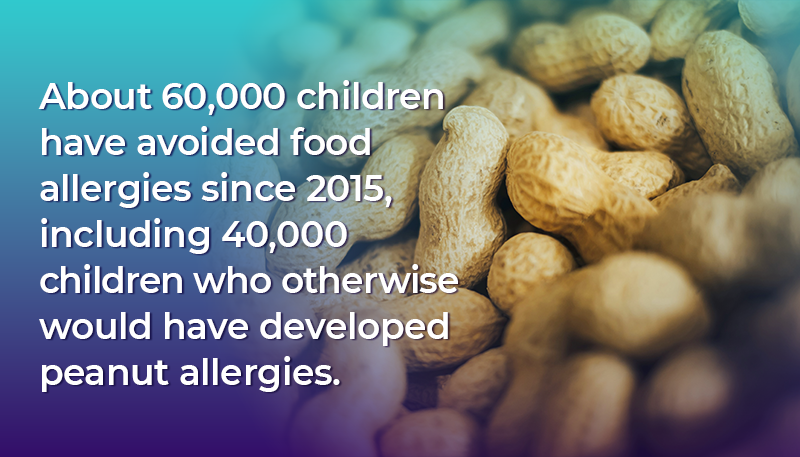
A groundbreaking shift in medical guidance has transformed how parents approach peanut allergies. New research proves that introducing babies earlier to peanuts is dramatically reducing allergies across populations.
From old guidelines to new evidence
Doctors once told parents to avoid giving peanuts to children until age three. A groundbreaking 2015 study showed that early introduction actually reduced peanut allergy risk by more than 80 percent. After medical guidelines changed in 2017, allergy rates in young children dropped by over 27 percent initially, then by more than 40 percent as the recommendations expanded. The protection has lasted into adolescence for about 70 percent of children, helping prevent reactions that range from hives to life-threatening anaphylaxis.
Implementation challenges
Despite strong evidence, adoption has been gradual. Surveys revealed only 29 percent of pediatricians and 65 percent of allergists were following the 2017 guidelines, largely due to confusion about implementation methods and concerns about safety outside clinical settings.
Current recommendations
Updated 2021 guidelines recommend introducing peanuts and other major allergens between four and six months of age, without prior testing. Parents should offer small amounts of foods like peanut butter, dairy yogurt, and tree nut butters to safely expose the immune system to these allergens.
The research offers promising evidence that this public health intervention is making a measurable difference, potentially preventing allergies in countless children across the United States.
A groundbreaking shift in medical guidance has transformed how parents approach peanut allergies. New research proves that introducing babies earlier to peanuts is dramatically reducing allergies across populations.
From old guidelines to new evidence
Doctors once told parents to avoid giving peanuts to children until age three. A groundbreaking 2015 study showed that early introduction actually reduced peanut allergy risk by more than 80 percent. After medical guidelines changed in 2017, allergy rates in young children dropped by over 27 percent initially, then by more than 40 percent as the recommendations expanded. The protection has lasted into adolescence for about 70 percent of children, helping prevent reactions that range from hives to life-threatening anaphylaxis.
Implementation challenges
Despite strong evidence, adoption has been gradual. Surveys revealed only 29 percent of pediatricians and 65 percent of allergists were following the 2017 guidelines, largely due to confusion about implementation methods and concerns about safety outside clinical settings.
Current recommendations
Updated 2021 guidelines recommend introducing peanuts and other major allergens between four and six months of age, without prior testing. Parents should offer small amounts of foods like peanut butter, dairy yogurt, and tree nut butters to safely expose the immune system to these allergens.
The research offers promising evidence that this public health intervention is making a measurable difference, potentially preventing allergies in countless children across the United States.